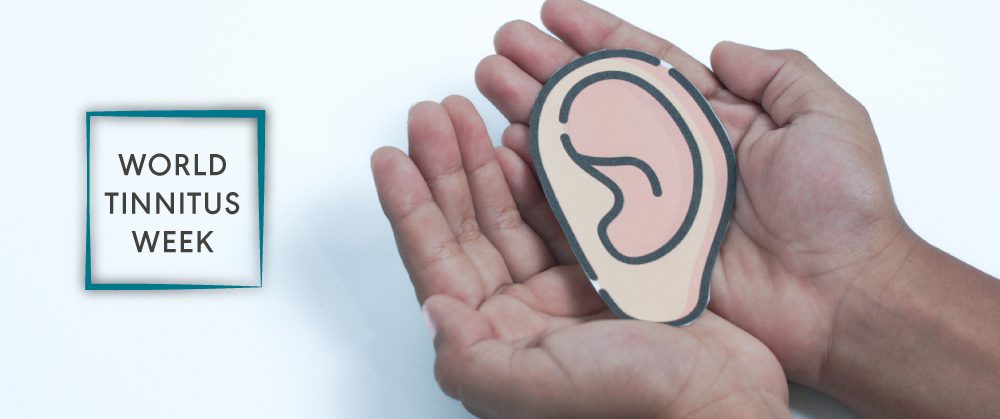Nearly one third of the world’s population is affected by tinnitus at some point in their lives, and ASHA’s audiologists often see patients dealing with the most chronic or bothersome tinnitus. In recognition of World Tinnitus Week, we’re highlighting a sample of the tinnitus research we’ve published in the last year in the Journal of Speech, Language, and Hearing Research (JSLHR) and the American Journal of Audiology (AJA).
Tinnitus Treatment Via Telepractice
Healing From Home: Examination of an Online Mindfulness-Based Tinnitus Stress Reduction Course During the 2020 COVID Pandemic: Research has shown that mindfulness-based treatments reduce distress, improve quality of life, and even increase immune function. Such treatments also have been used in tinnitus management for the last decade. In this article, the authors show that even a mindfulness-based stress reduction course taken online could decrease tinnitus severity and stress.
Hearing Health Care Stakeholders’ Perspectives on Teleaudiology Implementation: Lessons Learned During the COVID-19 Pandemic and Pathways Forward: Numerous studies have demonstrated the efficacy of telepractice in audiology, but how are these technologies perceived by experts and key stakeholders? Although experts have used teleaudiology and are positive about its potential, people with hearing disabilities may be unfamiliar with it or feel uncertain about its utility.
More on Tinnitus Treatment
Functional Hearing Difficulties in Veterans: Retrospective Chart Review of Auditory Processing Assessments in the VA Health Care System: Many functional hearing difficulties, including tinnitus, are not well explained by a person’s audiometric thresholds. This study of veterans showed that emotional health, mental health, sleep disorders, and head injuries were all associated with reported hearing difficulties that weren’t explained by audiometric thresholds.
Associations Between Physiological Correlates of Cochlear Synaptopathy and Tinnitus in a Veteran Population: Noise exposure, such as that faced by military service members, is a risk factor for cochlear synaptopathy. The authors studied military veterans with and without tinnitus and examined the correlation between cochlear synaptopathy and tinnitus.
Hearing Aids Combined With Educational Counseling Versus Educational Counseling Alone for Tinnitus Treatment in Patients With Hearing Loss: A Longitudinal Follow-Up Study: Educational counseling is the most frequently prescribed tinnitus management method, but when tinnitus co-occurs with hearing loss, patients may benefit from hearing aid use to reduce the perception of tinnitus. This article shows that both educational counseling and counseling combined with hearing aid use resulted in significant improvement for patients.
More Tinnitus Resources at ASHA
ASHA provides a variety of resources to help people experiencing tinnitus as well as the ASHA members who treat them. In recognition of World Tinnitus Week, you can share ASHA’s Tinnitus webpage, which gives individuals basic information about tinnitus causes and how to find an ASHA member to help.
You can always get the latest resources on treating clients with tinnitus from AJA, JSLHR, and Perspectives of the ASHA Special Interest Groups on ASHAWire. If you’re looking for more, explore the research shared in our previous coverage of World Tinnitus Week below!









